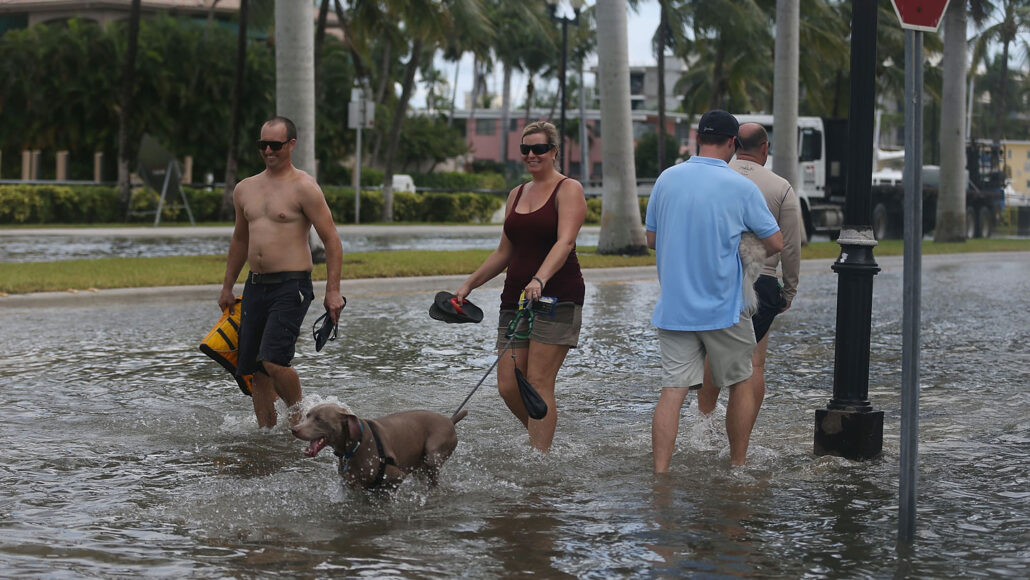Questions for ‘Moon’s orbital wobble can add to sea-level rise and flooding’

Even in the absence of rain, tides can occasionally flood the streets of coastal cities, such as here in Miami, Fla. Soon, a tide-enhancing wobble in the moon’s orbit will kick in, making things far worse, a new study reveals.
Joe Raedle/Getty Images News